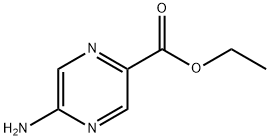Greetings, I’m curious about how to safely remove hard water stains from plastic surfaces. What are the best household substances to use? Are there any health risks involved if the stains are left untreated? Can harsh cleaners damage the plastic or cause skin issues?
How do you remove hard water stains from plastic without damaging the material or affecting health?
Related Encyclopedia

- 15006-36-7
- C32H36MgN4
- 500.96000
- All (0)
- China (0)
- (0)

- 64759-30-4
- CaMg
- 64.38300
- All (0)
- China (0)
- (0)
- 12133-32-3
- CaMg2
- 88.68800
- All (0)
- China (0)
- (0)

- 145224-99-3
- C40H75N9O10
- 842.08
- All (1)
- China (0)
- (1)

- 150188-64-0
- C10H13NO3
- 195.22
- All (0)
- China (0)
- (0)

- 2971-31-5
- C10H9NO3
- 191.18
- All (0)
- China (0)
- (0)

- 6710-83-4
- C3H6N2O2
- 102.09200
- All (0)
- China (0)
- (0)
- 1348091-16-6
- C7H10O7
- 206.15000
- All (893)
- China (66)
- (893)

- 77-92-9
- C6H8O7
- 192.12
- All (893)
- China (66)
- (893)

- 76123-46-1
- C8H12CaMgO8
- 300.55900
- All (0)
- China (0)
- (0)
Related Products More >
-
- 7778-54-3
- CNY Request For Quotation
-
- 14783-68-9
- CNY Request For Quotation
-
- 14783-68-8
- CNY Request For Quotation
-
- 14783-68-7
- CNY Request For Quotation
-
- 869-06-9
- CNY Request For Quotation
-
- 869-06-8
- CNY Request For Quotation
-
- 869-06-7
- CNY Request For Quotation
-
- 3344-18-3
- CNY Request For Quotation




Hard water stains are primarily caused by calcium and magnesium salts left behind when water evaporates. These mineral deposits form a white, chalky residue that sticks to surfaces like plastic. The chemical process involves the minerals binding tightly to the surface, making them hard to remove with just soap and water. From a health perspective, while hard water stains themselves are not toxic, the buildup can harbor bacteria or mold if left uncleaned, potentially causing skin irritation or allergies in sensitive individuals.
For safe and effective stain removal, mild acids such as white vinegar or diluted lemon juice work well because they react with the mineral salts, breaking them down into soluble forms that can be wiped away easily. Avoid harsh chemical cleaners or abrasive scrubbing tools, which can scratch or degrade the plastic, leading to microcracks that may trap dirt or bacteria. Alternatively, commercial cleaners designed for hard water deposits on delicate surfaces can be used, but always follow the product instructions and test on a small area first.
Regular cleaning and drying of plastic items after exposure to hard water helps prevent buildup. Using softened water or filtered water for rinsing can reduce mineral deposits. In settings like medical equipment or patient care items, maintaining cleanliness is crucial to avoid secondary infections or skin problems caused by microbial growth on stained surfaces.
Think of hard water stains like a sticky layer of “mineral glue” left behind when water evaporates. Imagine your plastic showerhead or water bottle cap looking cloudy after months of use. That’s the minerals (from tap water) clinging to the surface, refusing to budge with regular soap.
Here’s a quick fix: Mix equal parts white vinegar and warm water in a bowl or spray bottle. Submerge the stained plastic item (or spray it generously) and let it soak for 15-30 minutes. For tough spots, use a soft sponge or toothbrush to scrub gently—no abrasive scrubbers needed! Rinse thoroughly with water, and voilà! Your plastic should look shiny and clear again.
Pro tip: For items like faucet handles or showerheads, soak a vinegar-dampened cloth around the plastic part and wrap it with a rubber band. Let it sit for an hour to tackle hidden buildup. Regular maintenance (a quick vinegar wipe every few weeks) keeps stains from coming back. Easy, right? ?
Chemically, calcium carbonate is an ionic compound made of Ca²⁺ ions and carbonate ions (CO₃²⁻). The ionic bonds between these ions are quite strong, which is why the deposits adhere stubbornly. These deposits are mostly non-polar solids with limited solubility in neutral water, making them difficult to remove by simple washing. Plastics, often made of polymers like polyethylene or polypropylene, have non-polar carbon–carbon and carbon–hydrogen bonds, which generally resist dissolution or damage by mild acids or bases.
To remove these stains, we use weak acids like acetic acid (found in vinegar) or citric acid (from lemon juice). These acids donate protons (H⁺) that react with the carbonate ions in the deposits, converting them into soluble carbon dioxide gas (CO₂) and water. The overall reaction looks like this:
CaCO₃ (s) + 2H⁺ (aq) → Ca²⁺ (aq) + CO₂ (g) + H₂O (l)
This reaction breaks the ionic lattice of calcium carbonate, dissolving the deposits and allowing them to be wiped away. The acid-base reaction mechanism is key here: the protonation of carbonate ions destabilizes the solid mineral structure. Because plastics are generally chemically inert to weak acids, this method cleans the stains without damaging the plastic’s polymer chains or surface.
From a stability perspective, the ionic deposits are stable in neutral or basic conditions but become unstable and dissolve under acidic conditions due to protonation. This explains why vinegar or lemon juice, both mildly acidic, are effective household cleaners for hard water stains. Industrially, similar acid treatments are used to clean scale buildup in pipes or machinery.
A lot of people make mistakes here. Some scrub too hard with steel wool, which scratches the plastic and makes it easier for stains to come back. Others use harsh chemicals like bleach, but that can discolor plastic over time, especially lighter colors. And waiting too long to clean? Bad idea—stains set in deeper the longer they sit.
For a gentle fix, try vinegar. It’s acidic enough to break down minerals but safe for plastic. Mix equal parts white vinegar and water in a spray bottle, spritz the stains, and let it sit for 10-15 minutes. Then wipe with a soft cloth or sponge—no heavy scrubbing needed. If the stains are stubborn, make a paste with baking soda and water, apply it, let it sit, then wipe away. Baking soda’s mild abrasiveness helps without scratching.
Another trick: lemon juice. Its natural acidity works similarly to vinegar. Squeeze some fresh lemon on the stains, let it sit, then wipe. This is great if you don’t like the smell of vinegar.
For things like plastic water bottles or containers, fill them halfway with vinegar, add a splash of water, and let them soak overnight. Rinse well in the morning—good as new.
Remember, consistency helps. Wiping plastic items dry after they get wet (like shower caddies or kids’ cups) can stop stains from forming in the first place. No need for fancy products—your pantry probably has everything you need.